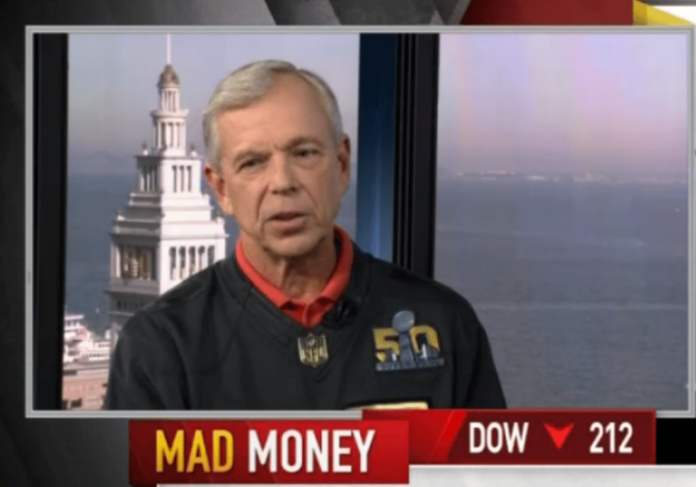McAdam of Verizon calls Sanders’ views ‘uninformed’ and ‘contemptible’
U.S. Sen. Bernie Sanders (D-Vt.), in his ongoing bid for the Democratic Party presidential nomination, has made calling out what he sees as corporate greed a centerpiece of his campaign. Sanders has even put together a list of “top 10 corporate tax avoiders,” which includes Verizon.
Sanders sympathizes with unionized Verizon workers who began a strike on Wednesday following 10 months of contract negotiations; he popped up at a picket line in Buffalo, N.Y., and spoke to workers who have also pointed to Verizon’s greed in dealing with employees.
Now, Verizon Communications Chairman and CEO Lowell McAdam is biting back at Sanders. McAdam on Thursday published some commentary on LinkedIn under the title, “Feeling the Bern of reality — The facts about Verizon and the ‘moral economy.’”
“The senator’s uninformed views are, in a word, contemptible. Here’s why,” McAdam wrote. “His first accusation – that Verizon doesn’t pay its fair share of taxes – is just plain wrong. As our financial statements clearly show, we’ve paid more than $15.6 billion in taxes over the last two years – that’s a 35% tax rate in 2015, for anyone who’s counting. We’ve laid out the facts repeatedly and did so again yesterday. The senator has started to fudge his language – talking of taxes not paid in some unspecified ‘given year’ – but that doesn’t make his contention any less false.”
The Sanders campaign alleges from 2008 to 2013, Verizon made $42.4 billion in domestic profits while receiving a total tax refund of $732 million from the Internal Revenue Service.
“Verizon’s effective U.S. corporate income tax rate over this six-year period was -2%,” according to the post, which also says in 2012, Verizon “stashed $1.8 billion in offshore tax havens to avoid paying U.S. income taxes. Verizon would owe an estimated $630 million in federal income taxes if its use of offshore tax avoidance was eliminated.”
The Sanders campaign post also calls out Verizon CEO Lowell McAdam for making $15.8 million in 2013, while pushing “to raise the eligibility age for Medicare and Social Security to 70, and make significant cuts to Social Security.”
McAdam continued: “Sen. Sanders also claims that Verizon doesn’t use its profits to benefit America. Again, a look at the facts says otherwise. In the last two years, Verizon has invested some $35 billion in infrastructure — virtually all of it in the U.S. — and paid out more than $16 billion in dividends to the millions of average Americans who invest in our stock. In Sanders’s home state of Vermont alone, Verizon has invested more than $16 million in plant and equipment and pays close to $42 million a year to vendors and suppliers, many of them small and medium-sized businesses. Just yesterday, we announced a $300 million investment to bring fiber to the city of Boston, which will make it one of the most technologically advanced cities in the nation and expand broadband access for its residents. Boston’s Mayor Walsh is partnering with us on this initiative, calling it crucial for providing the foundation for future technology growth. We’re making significant investments in New York City, Philadelphia and other metro areas throughout our wireline footprint.”
He concludes, “I understand that rhetoric gets heated in a Presidential campaign. I also get that big companies are an easy target for candidates looking for convenient villains for the economic distress felt by many of our citizens. But when rhetoric becomes disconnected from reality, we’ve crossed a dangerous line. We deserve better from people aspiring to be President. At the very least, we should demand that candidates base their arguments on the facts … even when they don’t fit their campaign narratives.”

